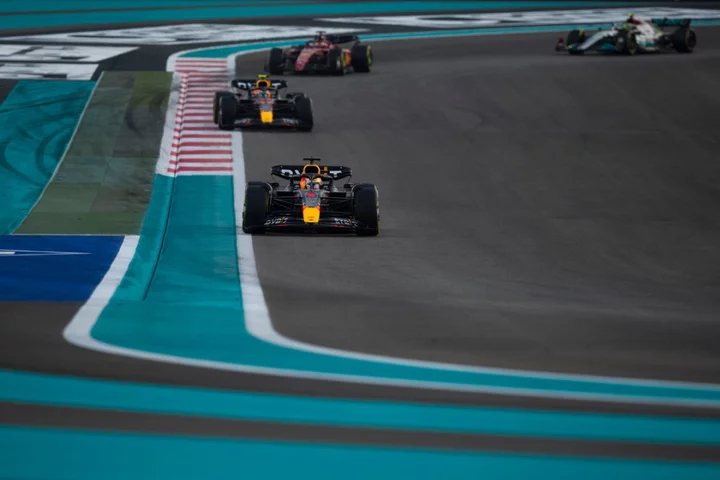F1 will trial artificial intelligence at this weekend’s season finale in Abu Dhabi to regulate track limit violations.
A common issue in the 2023 season has been cars crossing the white line at the edge of the track with all four wheels, resulting in lap times being deleted in qualifying and the race.
Yet this weekend at the Abu Dhabi Grand Prix, the sport’s governing body - the FIA - will use ‘Computer Vision’ technology that uses shape analysis to work out the number of pixels going past the track edge.
The Austrian Grand Prix in July was a particularly difficult race to regulate, with just four people having to process an avalanche of some 1,200 potential violations which eventually changed the final result of the race hours later.
While in Qatar in October, there were eight people assigned to assess track limits and monitor 820 corner passes, with 141 reports sent to race control who then deleted 51 laps.
However, some breaches still went unpunished at October’s U.S. Grand Prix in Austin.
Stewards said this month that their inability to properly enforce track limits violations at turn six was “completely unsatisfactory” and a solution needed to be found before the start of next season.
Tim Malyon, the FIA’s head of remote operations and deputy race director, said the Computer Vision technology had been used effectively in medicine in areas such as scanning data from cancer screening.
“They don’t want to use the Computer Vision to diagnose cancer, what they want to do is to use it to throw out the 80% of cases where there clearly is no cancer in order to give the well-trained people more time to look at the 20%,” he said.
“And that’s what we are targeting.”
Malyon said the extra Computer Vision layer would reduce the number of potential infringements being considered, with still fewer then going on to race control for further action.
“The biggest imperative is to expand the facility and continue to invest in software, because that’s how we’ll make big strides,” he said. “The final takeaway for me is be open to new technologies and continue to evolve.
“I’ve said repeatedly that the human is winning at the moment in certain areas. That might be the case now but we do feel that ultimately, real time automated policing systems are the way forward.”
Additional reporting by Reuters
Read MoreLewis Hamilton says Red Bull chief is ‘stirring things’ over team move claim
Toto Wolff and Fred Vasseur receive warnings over ‘swearing’ in Las Vegas
‘He’s stirring things!’ Lewis Hamilton takes aim at Christian Horner
F1 2023 season race schedule: When is the Abu Dhabi Grand Prix?
Why are Lewis Hamilton and Max Verstappen missing first practice in Abu Dhabi?
Hamilton ‘made contact with Red Bull and Ferrari’ before signing new Mercedes deal

